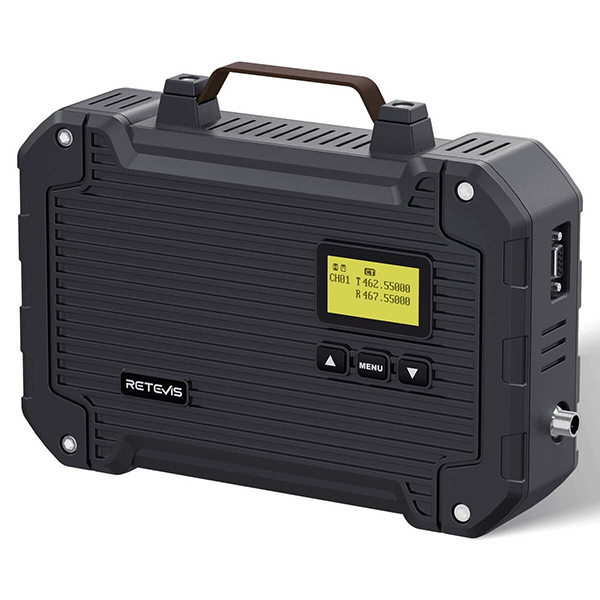When Mountains Block Your GMRS Repeater Signal

When Mountains Block Your GMRS Repeater Signal
Understanding Mountainous Terrain Challenges
Mountain ranges present unique obstacles for GMRS repeater signals, even with robust systems like the 25W RT97L featuring IP66 waterproof rating and uniform signal distribution. These natural barriers can dramatically reduce your effective communication range if not properly addressed.
How Mountains Affect Your Signal
Common Issues:
-
Complete signal blockage behind mountain ridges
-
Radio shadows in valleys and canyons
-
Multipath distortion from rock face reflections
-
Elevation-related temperature inversions altering propagation
RT97L Performance Factors:
-
25W power helps but can't overcome all terrain
-
IP66 rating allows high-altitude installation
-
Uniform distribution prevents directional dead zones
5 Practical Solutions for Mountainous Areas
1. Strategic Repeater Placement
-
Summit installations (using RT97L's weatherproof design)
-
Saddle positions between peaks
-
South-facing slopes (better solar exposure)
-
Above tree line for clear transmission
2. Antenna Optimization
-
Higher gain antennas
-
Directional antennas for targeted coverage
-
Proper lightning protection systems
-
Low-loss coaxial cable
3. Linked Repeater Systems
-
Multiple RT97L units for complete coverage
-
Careful frequency coordination
-
Wired or wireless linking options
-
Solar power considerations
4. Alternative Communication Paths
-
Identify natural "radio tunnels" (canyons/valleys)
-
Utilize high lakes for signal reflection
-
Exploit temperature inversion layers
-
Schedule transmissions during optimal conditions
5. Technical Adjustments
-
Fine-tune squelch settings
-
Optimize CTCSS/DCS tones
-
Adjust power settings situationally
-
Monitor battery levels in cold weather
The RT97L Advantage in Mountainous Terrain
This repeater excels in challenging environments because:
-
25W power pushes signals further
-
IP66 waterproof withstands mountain weather
-
Stable components handle temperature swings
-
Efficient cooling prevents high-altitude overheating

- RT97L
Installation Tips for Mountain Locations
-
Use existing infrastructure (fire towers, ski lifts)
-
Consider solar/wind power where grid unavailable
-
Protect against lightning (proper grounding)
-
Account for seasonal access (snow conditions)
-
Document exact GPS coordinates for maintenance
When to Consider Professional Help
For situations requiring:
-
Specialized tower installations
-
Complex linking systems
-
Advanced terrain analysis
-
Permitting and regulatory compliance
Maintenance Considerations
Mountain installations need:
-
More frequent weatherproofing checks
-
Additional wildlife protection
-
Regular snow/ice removal
-
Enhanced corrosion protection
Alternative Solutions When Mountains Win
If terrain proves impassable:
-
Satellite communicators for critical needs
-
Store-and-forward message systems
-
Scheduled relay points
-
Lower-frequency alternatives (where legal)
Conclusion: Overcoming Nature's Barriers
While mountains present real challenges for GMRS repeaters like the RT97L, strategic planning and proper equipment can overcome most obstacles. The repeater's 25W power, IP66 waterproof construction, and uniform signal distribution give you the best chance of maintaining communications in rugged terrain.






